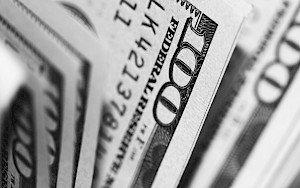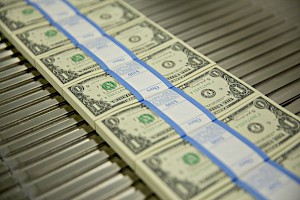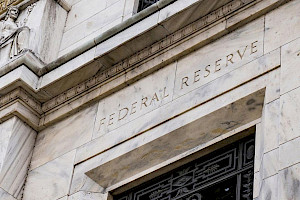The simple case for a flat tax system
November 08, 2021Originally published in The Toronto Star on October 26, 2021 as contributing columnist
Benjamin Franklin said there are two certainties in life: death and taxes. But there are actually three: death, taxes and tax avoidance.
“Only fools pay,” I recall someone telling me on one of my first trips to Italy many years go. He was expressing the nation’s cultural view about Italians’ unwillingness to pay income taxes. From his perspective it was foolish to pay taxes to a government no one trusted.
You might forgive his cynical perspective. Italy, although the third-largest economy in the EU, has been plagued by a long list of dysfunctional governments that have turned over on an annual basis — literally. Since the Second World War, Italians have endured 66 governments. From my friend’s perspective, why should he pay for the mistakes of governments that were in the distant past?
Italy’s federal debt requires interest payments that equal four per cent of GDP, which constitute the second-highest in Europe. The country’s under-the-table shadow economy costs its treasury at least $340 billion in unpaid taxes each year as far back as 2011. If these taxes were actually collected, Italy could conceivably pay off its $3.1-trillion debt in less than eight years.
As one can imagine, the explanation for this chronic problem is a hotly debated issue in the Italian media. So much so that the former head of the Agency of Revenue, Rosella Orlandi, once opined that perhaps the reason Italians don’t pay their taxes is because they are Catholic. Referring to the long tradition of tax amnesties, she said, “We are a country with a strong Catholic environment and we are used to committing a sin and gaining absolution.” Getting off the hook by saying three Hail Marys sounds like a fine plan, but I am sure it’s not as effective as a fine or prison sentence.
In Italy, it’s individuals who avoid taxes. In America, on the other hand, it’s middle-class people who carry the burden, while corporations pay little or no federal tax. The end result is the same in both jurisdictions — the national debt soars. Meanwhile, corporations everywhere generate record profits. In fact, corporations contribute only 6.6 per cent of all taxes collected by the U.S. federal government.
Of course, that is not the intent of existing tax legislation. Everyone — individuals and corporations — is supposed to pay the requisite tax rate. It’s just that corporations can afford expensive tax attorneys, accountants and lobbyists who find elaborate means of avoiding federal tax, including accelerated depreciation, special credits and writing off the value of employee stock options, which generally accrue to C-suite executives. And, most egregiously, shifting corporate income to subsidiaries in low-tax countries where they don’t necessarily operate.
In 2018, the year Trump’s Tax Cuts and Jobs Act (TCJA ) went into effect, 91 of the top Fortune 500 companies paid zero federal tax. On the list were corporate giants such as Starbucks, Amazon, IBM and Netflix. Worse still, 26 companies that booked a combined $77 billion (U.S.) in profits not only paid zero tax, but received rebates that totalled almost $5 billion, creating an effective negative tax rate. This is in no way a recent phenomenon. From 2008 to 2015, 100 large U.S. corporations avoided paying any federal tax in at least one year, while their combined pre-tax income totalled $336 billion.
To mitigate this loss of income, the Organization for Economic Co-operation and Development is leading an initiative in which 136 countries representing 90 per cent of global GDP recently agreed to a minimum 15 per cent tax rate that all companies must pay, regardless of where they operate or where they domicile. It’s hoped this will capture $150 billion in taxes not currently being paid. Whether this agreement will succeed in its intent is yet to be seen. The elephant in the room is the U.S., which needs congressional approval to enforce this agreement at a time when the Biden administration is trying to introduce major tax reform. In today’s dysfunctional political environment, agreements of this magnitude may be difficult to achieve.
But even if an agreement comes to pass, you can bet that tax professionals are already working overtime to find loopholes. The reality is that no matter what the corporate tax rate may be at any given time, few corporations actually pay at those levels. Prior to the 2017 TCJA, when corporations were supposed to be paying a 35 per cent effective tax rate, the average rate corporations actually paid was a mere 21 per cent. It came as no surprise that even after the rate was dropped from 35 per cent to 21 per cent, a report published by the Institute on Taxation and Economic Policy revealed that in 2018, 379 top corporations found clever ways to pay only an 11.3 per cent average tax rate.
So, how does one fix this never-ending race to the bottom? Ending the progressive tax system with its complex apparatus of credits and exemptions that only the wealthy can afford to navigate might be a good place to start.
Enter the idea of a flat tax. Simply put, everyone pays one flat rate, say 15 or 20 per cent on all income earned. No deductions, credits, exemptions, rebates or any other loophole. It’s simple — if you earn, you pay. A level playing field for everyone. Just imagine filling out one page on your tax return.
This is not a novel idea by any means and is a topic that has been debated by political parties in both the U.S. and Canada (usually by conservatives). But somehow, it never goes anywhere. The likely reason? In the U.S. alone there are close to two million accountants and tax attorneys who make a great living keeping things complicated and to the sole benefit of clients who can pay their fees. Lobbyists for special interest groups also make a great living, ensuring that legislators do their part in keeping the tax system opaque.
Opponents of a flat tax system will suggest that it would shift the tax burden to low-income groups and provide a boon for the rich because the top marginal rate would be cut down. These are weak arguments. Firstly, it would be simple to just provide low-income earners with a large upfront exemption, say, at the poverty income rate (i.e., $20,000), so as to not disadvantage the poor. Secondly, the reality is that high-income earners, especially corporations, find ingenious ways to avoid paying the top marginal rate in the first place. In essence, the government pretends to tax them and they pretend to pay.
I believe most people are willing to pay their fair share of tax (yes, including rich people) if they believed it were a level playing field. There is a growing sense that the system is unfair and tilted in favour of the elites. Seven out of 10 Americans believe corporations don’t pay enough tax. Governments know that the middle class can only bear so much of the tax burden, which has led them to increase government debt to dangerous levels. Those debt levels are then monetized, which in turn leads to higher inflation, which is a more insidious form of tax to low- and middle-income workers.
A flat tax would be a much fairer and simpler one for citizens to pay, and, by including a reasonable personal exemption, would avoid disadvantaging low-income earners. Additionally, a flat tax that eliminates loopholes would ensure greater compliance among corporations and the wealthy.
It’s a simple solution. Making the complicated simple, now that would be progress.










